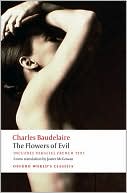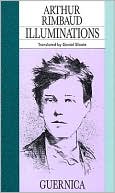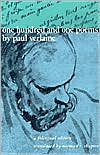Selected Poems of Victor Hugo: A Bilingual Edition
Although best known as the author of Notre Dame de Paris and Les Misérables, Victor Hugo was primarily a poet—one of the most important and prolific in French history. Despite his renown, however, there are few comprehensive collections of his verse available and even fewer translated editions.\ Translators E. H. and A. M. Blackmore have collected Victor Hugo's essential verse into a single, bilingual volume that showcases all the facets of Hugo's oeuvre, including intimate love poems,...
Search in google:
Although best known as the author of Notre Dame de Paris and Les Misérables, Victor Hugo was primarily a poet—one of the most important and prolific in French history. Despite his renown, however, there are few comprehensive collections of his verse available and even fewer translated editions.Translators E. H. and A. M. Blackmore have collected Victor Hugo's essential verse into a single, bilingual volume that showcases all the facets of Hugo's oeuvre, including intimate love poems, satires against the political establishment, serene meditations, religious verse, and narrative poems illustrating his mastery of the art of storytelling and his abiding concern for the social issues of his time. More than half of this volume's eight thousand lines of verse appear here for the first time in English, providing readers with a new perspective on each of the fascinating periods of Hugo's career and aspects of his style. Introductions to each section guide the reader through the stages of Hugo's writing, while notes on individual poems provide information not found in even the most detailed French-language editions.Illustrated with Hugo's own paintings and drawings, this lucid translation—available on the eve of Hugo's bicentenary—pays homage to this towering figure of nineteenth-century literature by capturing the energy of his poetry, the drama and satirical force of his language, and the visionary beauty of his writing as a whole.Publishers WeeklyThis satisfyingly fat collection has some definite virtues in tracking the poetic output of Hugo (1802-1885), France's monumental 19th-century scribe: it is organized chronologically, with prefaces that mark out his various phases, and the original French texts are included, which is a rare if necessary pleasure in understanding European poetry. Unfortunately, in terms of translation, this huge book is almost a total loss. The Blackmores (Six French Poets) are a freelance writer and a faculty member of Australia's Curtin University, respectively, and they have chosen to render Hugo's work by preserving the rhymes. What results loses almost all of Hugo's power, as his delicate combination of the plainspoken and grandiose is upset by the demands of English jingling. Perhaps Hugo's most famous lyric, "Tomorrow, at Dawn...," becomes: "I'll cross the woods, I'll cross the mountain-height./ No longer can I keep away from you.../ Alone, unknown, hands crossed, and back inclined;..." If the "mountain-height" and "inclined" seem odd, that's because they are inventions of the translators, in order to rhyme with "bright" and "mind" respectively. Hugo wrote a far simpler poem, about how he would "go by the mountain" with his "back bent" to pay his respects at his daughter's grave. It is not an isolated incident, and anyone who reads even a little French must wince at the constant unpoetic interventions in English. This is a particular pity, as the translators have clearly worked hard to set the poet's work in biographical context, even if a preface underrates his novels as "by-products of his career... in which his talents were only half involved." The rather skimpy notes and very limited bibliography are added disappointments. (Apr.) Forecast: As far as bilingual selections of Hugo's verse go, this is presently the only game in town, so university libraries and stores with larger poetry collections will be forced to act accordingly. The French versions and good intentions of the translators provide some succor. Copyright 2001 Cahners Business Information.
List of illustrationsIntroductionvChronologyOdes and ballads (1822-8)1Epitaph4Morning6Summer rain8Orientalia (1829)15Moonlight18The child20Anticipation22The captured city24Ecstasy24Bounaberdi26Autumn leaves (1831)30"This century was two years old ..."32The slope of reverie36"I love these calm clear evening hours ..."46"Tonight in clouds the sun has gone to bed ..."48"One last word ..."50Songs of the half-light (1835)56"Lord, if you shelter France beneath your wings ..."58"Never revile a woman for her fall ..."60"Since I have tasted your still-brimming bowl ..."60Trust in God62"Since flowering May is calling us outside ..."62Lilies in tribute64Inner voices (1837)71To Virgil72To Albrecht Durer76"In Virgil, that almost angelic God ..."78"Look at the children next to one another ..."78"Love, child, is first of all a mirror ..."80After reading Dante82Sunlight and shadows (1840)86"In souls, as in pools slumbering beneath trees ..."88Guitar song88Passing through the place Louis XV on a public holiday90"O in my dreams draw near my resting place ..."92The melancholy of Olympio94Night on the ocean106June nights108The empire in the Pillory (1853)111To those who died on the fourth of December114"Since honest men are in the slime ..."116Fable - or history120No120The imperial cloak124Song of the departing seafarers126The expiation128Star152"There was a storm; the tide was at its height ..."154Contemplations (1856)159My two daughters162Reply to a bill of indictment162Continuation176"Blessed is the man rapt in the timeless will ..."182Omphale's spinning wheel184Letter186Written at the foot of a crucifix188Insomnia188Joys of evening192"It was a quirk of hers from earliest childhood ..."196"At dawn tomorrow, when the plains grow bright ..."198Death200"A stream fell from the mountainside ..."200At the feuillantines202Words on the dune204"I picked this flower for you on the hilltop ..."208"Hear me : I, John, have seen dark things ..."210"With our vile pleasures, passions, and disgraces ..."210To the veiled one212"It's all a tomb ..."220Nomen, numen, lumen222To the one who stayed in France222Songs of street and wood (1865)246Maytime dispatches248Reality250"Beware of pretty girls ..."250Seed-time, evening252The lion at noon254"'Be off!' say winter's snows ..."256The year of horrors (1872)260On the ramparts of Paris, at nightfall262Stupidity of war262A night in Brussels264"They serenade me, since I'm so humane ..."266The revilers268The art of being a grandfather (1877)270"There on the grass Jeanne sat, pink, pondering ..."272"The Comte de Buffon, fine fellow ..."274"Animals, see, they talk ..."280What the public says280The immaculate conception284The four winds of the spirit (1881)291For whom the cap fits294Pretty girls296"She went past : and I think she smiled at me ..."296"Because I shun the public marketplace ..."298"Marble and night created me ..."300To my daughter Adele304Walking in the morning304"All, always ..."306Night thoughts308The legend of the ages (1859-83)313To France318The earth318The lions326Boaz asleep336God invisible to the thinker342Supremacy344Inscription354The dragon356To the lion of Androcles356Muhammad362The parricide362Vivar372The insulted bey376The infanta's rose378"I walked at random, went forward ..."392The devourers394"A deep-eyed man went by ..."398The mountains400"All, in the vaulted dark, was vision ..."4041851 - a choice between two passersby406"I thought I had stopped living ..."408"O God, whose work excels all we can think ..."410The end of Satan (1886)415The song of Bethphage418The triumphal procession432The agony begins438Christ sees what will come to pass440Judas446Rosmophim450The crucifix450Beyond the earth III458God (1891)463"May this work, in its blazing flight ..."466The threshold of the abyss466The bat478The raven488The eagle500The light-source514The whole lyre (1888-97)538"Dusk, calm and deep, spreads out across the plains ..."540Night540"Barbey breathes - it's the way things are ..."542For Theophile Gautier544The moon548Birds550"Some day, no longer ruling any land ..."552"Do you take mankind for be-all and end-all? ..."552The fateful years (1898)558"Your honor, let me put it to you plain ..."560Paris "embellished"562Imperial and empirical564Last gleanings (1902)566Chorus568"Eternal, absolute, boundless, immutable ..."570Ocean (1942)572"Night fills the house with its funereal breeze ..."574"Yes, the same infinite - blue sea, deep shade ..."574"Calmly God writes across the glorious vast ..."576Notes579Select bibliography615List of poems in order of composition617Index of titles and first lines623
\ Publishers Weekly - Publisher's Weekly\ This satisfyingly fat collection has some definite virtues in tracking the poetic output of Hugo (1802-1885), France's monumental 19th-century scribe: it is organized chronologically, with prefaces that mark out his various phases, and the original French texts are included, which is a rare if necessary pleasure in understanding European poetry. Unfortunately, in terms of translation, this huge book is almost a total loss. The Blackmores (Six French Poets) are a freelance writer and a faculty member of Australia's Curtin University, respectively, and they have chosen to render Hugo's work by preserving the rhymes. What results loses almost all of Hugo's power, as his delicate combination of the plainspoken and grandiose is upset by the demands of English jingling. Perhaps Hugo's most famous lyric, "Tomorrow, at Dawn...," becomes: "I'll cross the woods, I'll cross the mountain-height./ No longer can I keep away from you.../ Alone, unknown, hands crossed, and back inclined;..." If the "mountain-height" and "inclined" seem odd, that's because they are inventions of the translators, in order to rhyme with "bright" and "mind" respectively. Hugo wrote a far simpler poem, about how he would "go by the mountain" with his "back bent" to pay his respects at his daughter's grave. It is not an isolated incident, and anyone who reads even a little French must wince at the constant unpoetic interventions in English. This is a particular pity, as the translators have clearly worked hard to set the poet's work in biographical context, even if a preface underrates his novels as "by-products of his career... in which his talents were only half involved." The rather skimpy notes and very limited bibliography are added disappointments. (Apr.) Forecast: As far as bilingual selections of Hugo's verse go, this is presently the only game in town, so university libraries and stores with larger poetry collections will be forced to act accordingly. The French versions and good intentions of the translators provide some succor. Copyright 2001 Cahners Business Information.\ \








